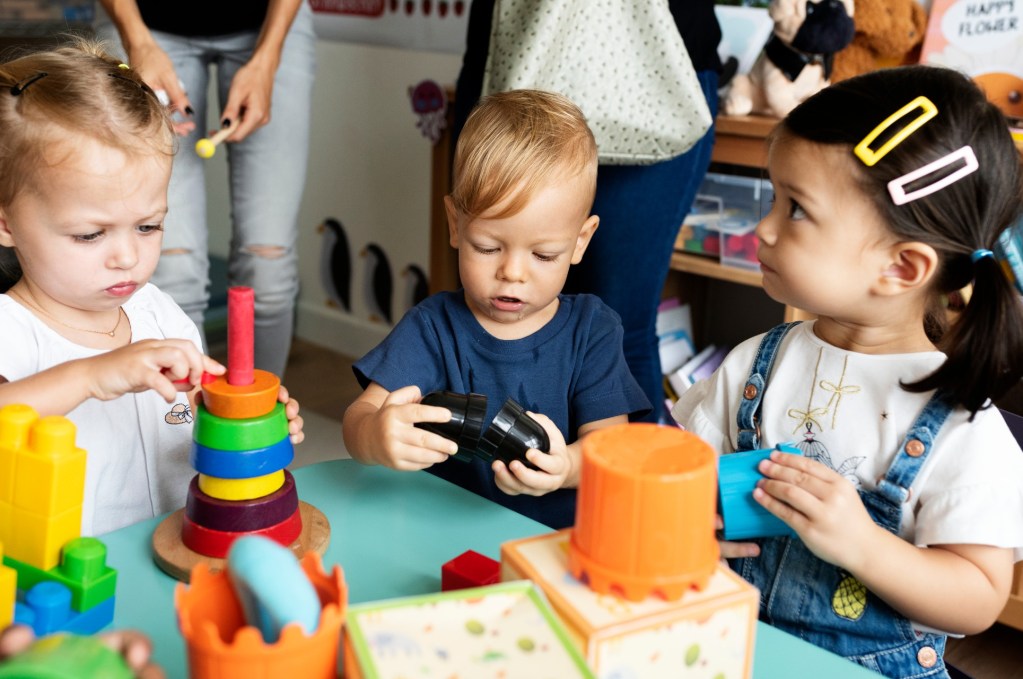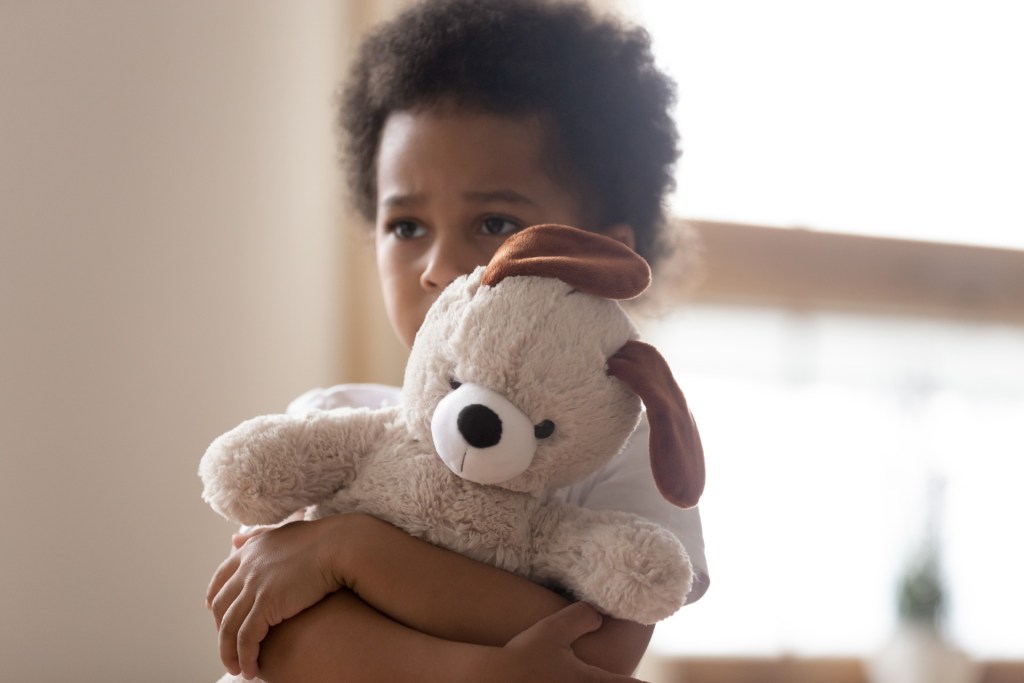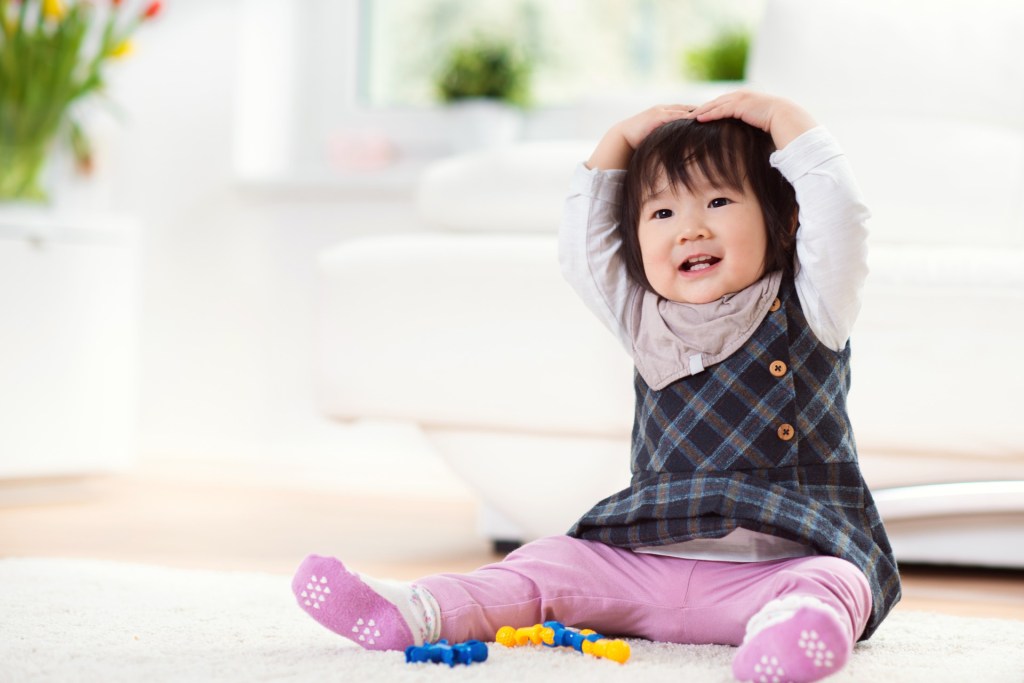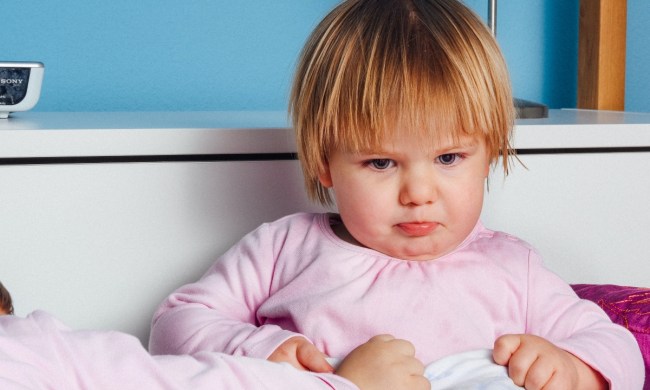Social and emotional development for toddlers — or the experiences, expressions, and management of a child’s own feelings and emotions — begins as early as 6 months of age in some cases. At that stage of their lives, our children can begin to recognize familiar and frequent members of their families, helping them form bonds and set the pace for interacting with others, including what to expect from them. Babies begin to learn at a very early age and from their environmental surroundings.
Parents and close contacts such as nannies, sitters, friends of the family, and extended family members are a child’s first teachers of emotional needs, including how to interact with them in good – and some not so good – ways. While it may take time for our little ones to put those learned skills to good use, understanding toddler social development can prepare parents for ways to support, areas to focus on, and tips for encouraging their tot to build healthy and stable relationships with others while walking their own paths in a healthy way.

Social and emotional development for toddlers
Break it down
According to the California Department of Education, social and emotional development is defined as “the child’s experience, expression, and management of emotions and the ability to establish positive and rewarding relationships with others.” As a toddler, your child has already been exposed to a familiar group of influencers. This group usually consists of immediate family members, close friends, caregivers such as daycare workers or nannies, and anyone else the parents have deemed worthy to be included in the raising and rearing of their child.
What happens over the course of the next few years is the development of those relationships, and what transpires between the child and the other individuals involved. Situations such as taking turns, safe conflict resolution, cooperation between peers, self-recognition of feelings and emotions, and self-regulation of emotions and behaviors.

It takes a village
As the old saying goes, “It takes a village to raise a child.” That village, consisting of people close to the child, is involved in helping that child develop in many ways. Those people, be they family members, friends, caregivers, or teachers, utilize their skills to help the child develop into a well-rounded individual. These skills can differ from person to person, but each one plays a pivotal role in helping the child develop, learn how to establish and process their feelings and emotions, troubleshoot through problems, regulate behaviors, communicate clearly to themselves and others, and develop trust.
The village you choose to raise your children within will greatly impact how they develop and mature. Children mature and learn through experiences, making what happens around them part of who they are and how they will deal with each situation as it comes up. They learned that from their village, making the selection of your village members vital to cultivate the development of your child’s social and emotional needs and knowledge.

What to look for
You’ve done the hard work, you’ve brought your baby into the best possible, most loving, and well-planned environment to nurture their growth. Your baby has reached some social and emotional development milestones already such as making eye contact, smiling and reaching for a loved one when they are requesting attention, moving and exploring their surroundings, understanding communication while also engaging in it verbally, understanding the feelings of others, and beginning to push boundaries. You may be wondering what kind of social and emotional clues to look for as your toddler begins to develop through their next phase in life. We’ve collected a list of milestones parents can look to with tips on how to evolve through them.
- Using verbal communication to express feelings and emotions. These types of communication can be positive or negative but are very much clear and situationally correct. Simply praising your toddler for getting their point across in a healthy way can encourage them to continue practicing their language skills.
- Becoming more independent with their care. At the toddler stage, children who are on track socially and emotionally will often begin to try their hand at doing things themselves such as getting dressed, pouring drinks or snacks, retrieving items needed for a task, or participating in hygiene practices.
No matter where your toddler may be socially or emotionally, it’s vital for parents to remember that all children develop differently, and no two toddlers are alike. While most children do evolve around the same time frame, it’s not always true for every child in every situation. If you feel your child isn’t where they should be in their development, bring your concerns to the table and speak with your child’s medical team or pediatrician.
Each child is different, some with physical, medical, or emotional health concerns that can often play into their developmental path. Sometimes it’s because of the lack of development during these milestones that other issues can arise or be discovered. If you are planning a visit with your pediatrician soon, a recommendation could be to document the area that is lacking so that it’s written down and not forgotten. Keeping track of these missed steps can help paint a clearer picture for your toddler’s team, helping them refine their plan to aid your child, ultimately helping them become more developed and ready for the next steps in life.



